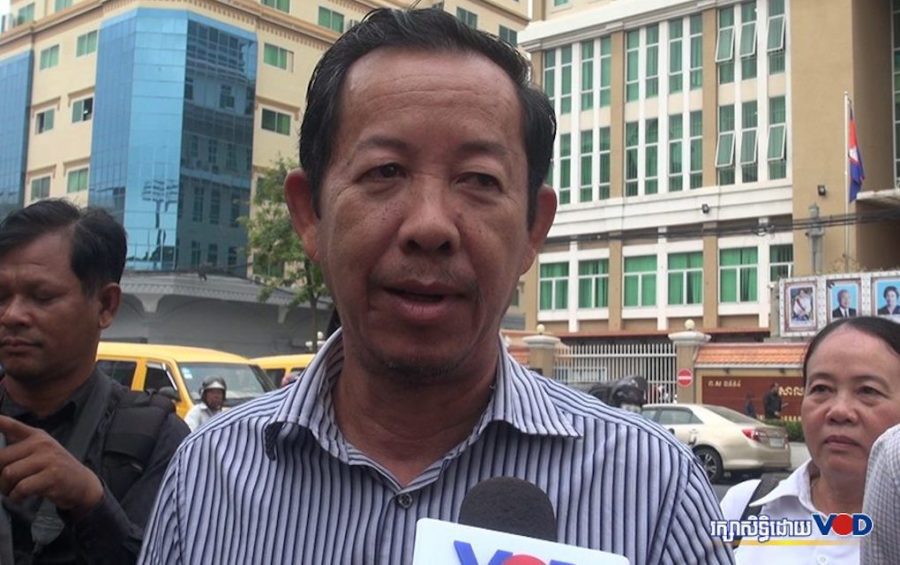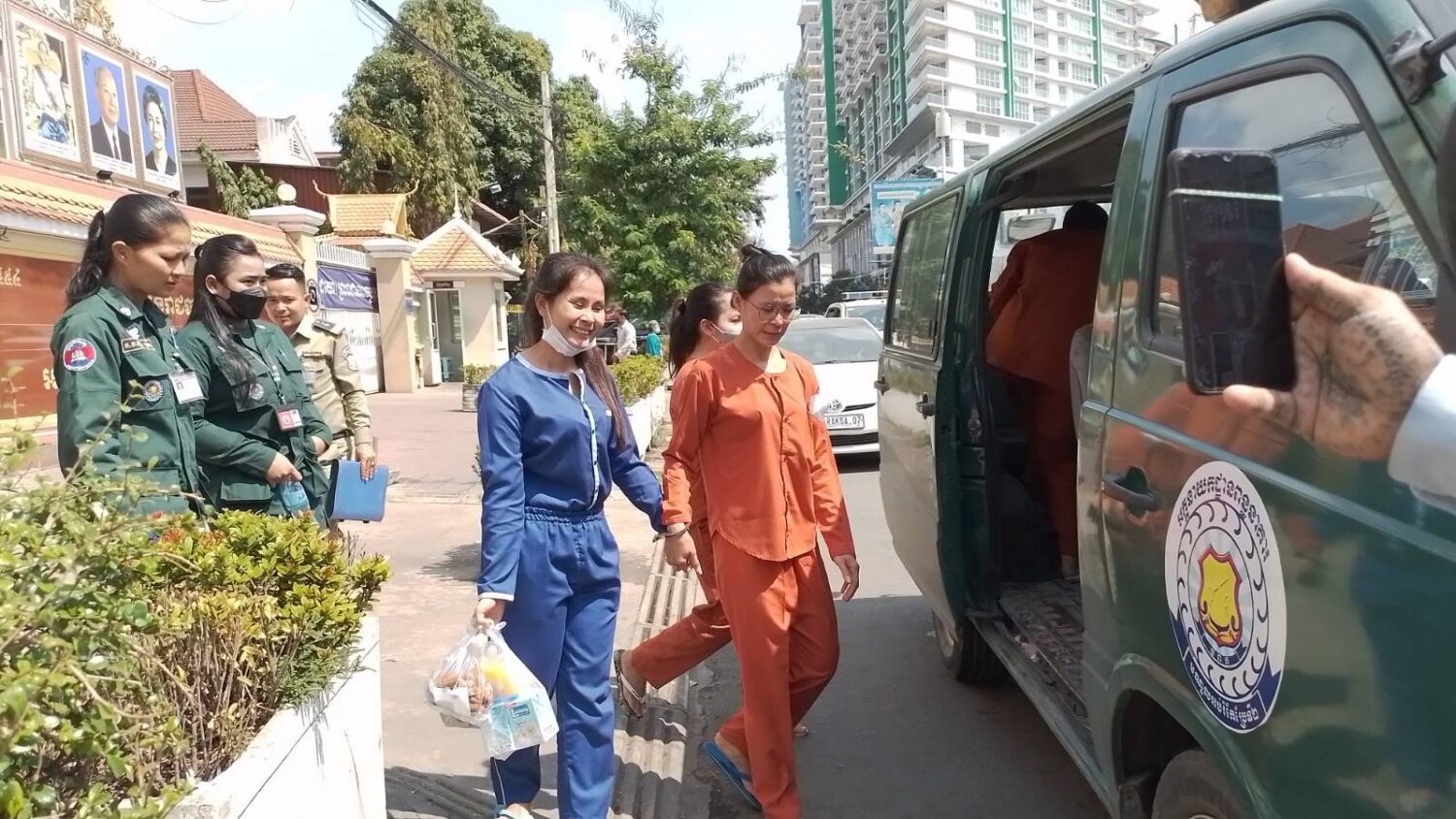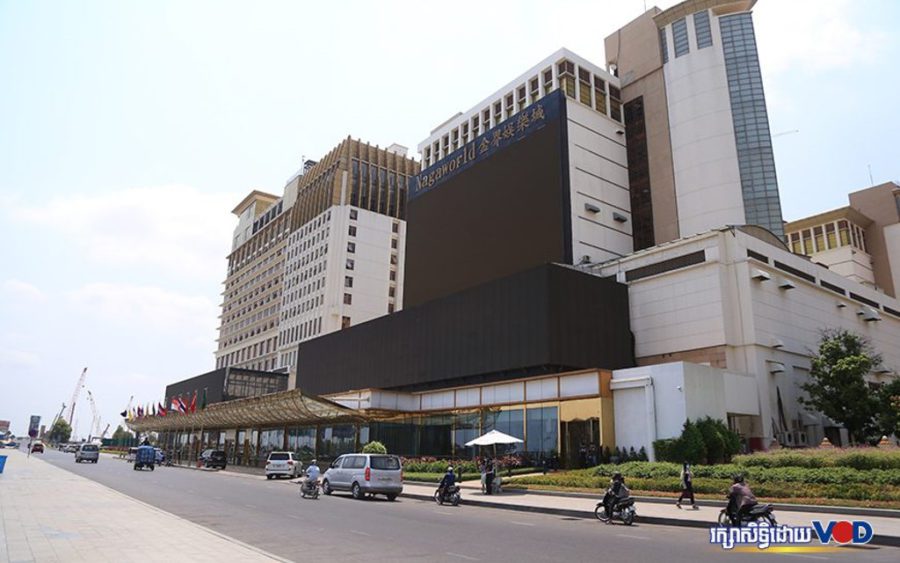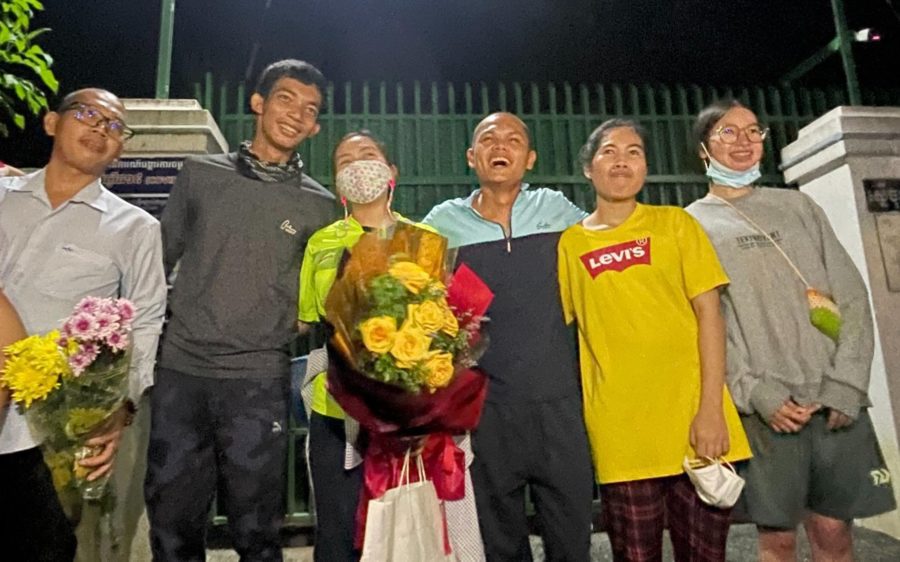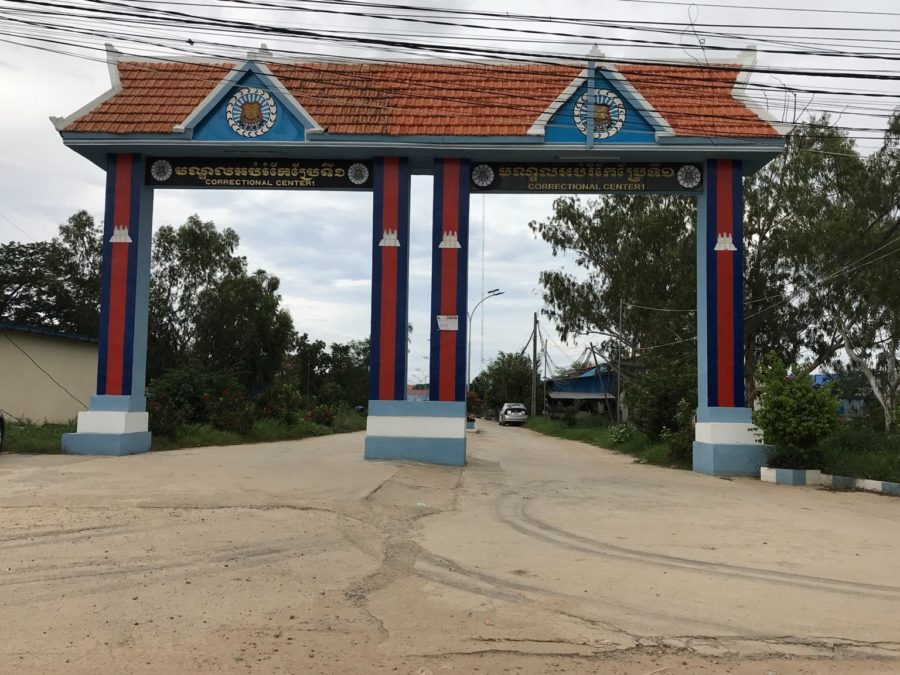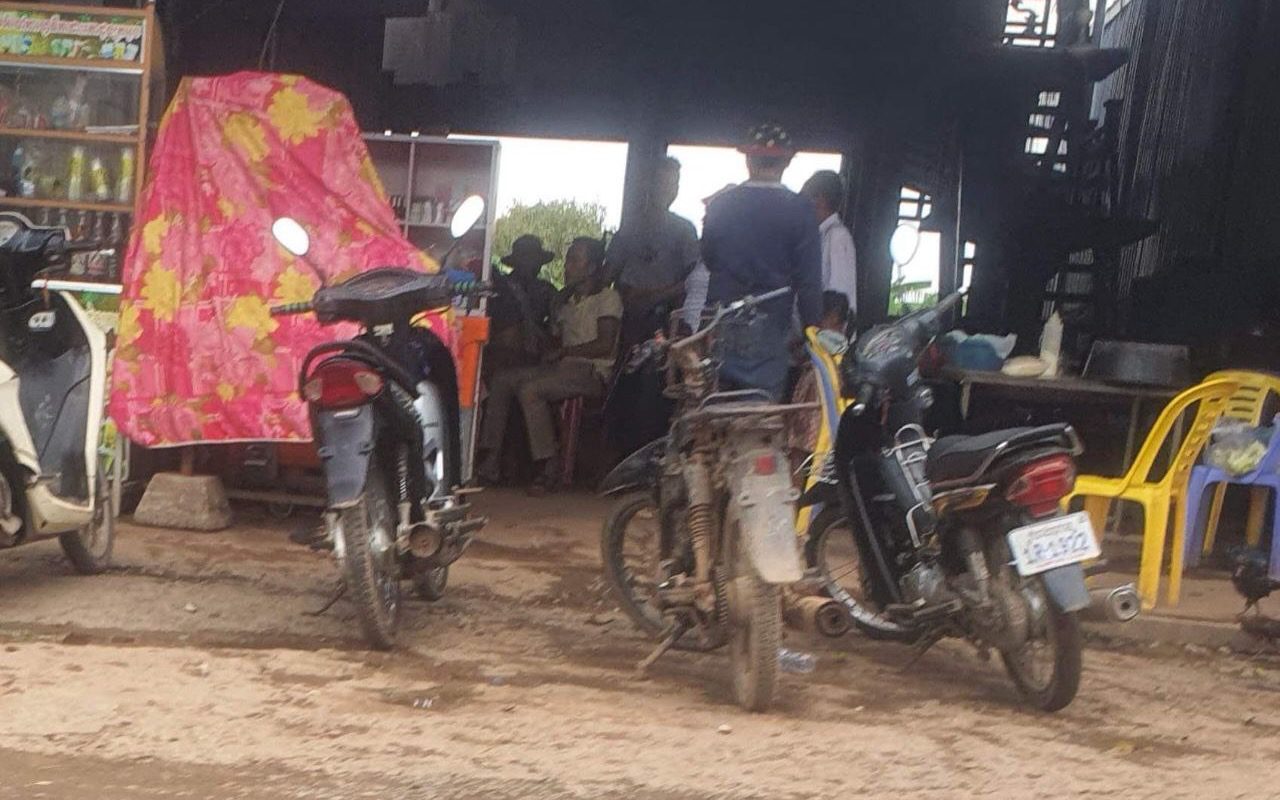An expert police witness was questioned at the Phnom Penh Municipal Court on Wednesday about extracting contacts’ numbers, photos, social media account details, voice messages and more from the phones of defendants in an incitement trial against unionist Rong Chhun and two supporters.
Chhun, president of the Cambodian Confederation of Unions, is on trial alongside supporters Sar Kanika and Ton Nimol after he made a controversial statement about the country losing land along the Vietnamese border.
In Wednesday’s hearing, the court clerk enumerated the relevant findings that police extracted from a phone confiscated from Kanika: 110 phone numbers, 21 photos, five voice messages, two Facebook accounts, a Telegram account, and a copy of Chhun’s statement.
Police also found that Kanika had deleted some information in advance, according to the court clerk.
Defense lawyer Sam Sokong raised concerns over the broad collection of personal data, asking whether police had searched with a specific target in mind.
Chan Darith, a bureau chief of investigation and procedures for the National Police, said his officers looked broadly but selected items based on how relevant they were to the case.
Darith said officers installed a program on Kanika’s phone to extract protected data.
Sokong asked how police knew she had deleted data.
“This phone had little data … almost no photos, and one of the two Facebook accounts had been changed,” Darith said, but Sokong persisted, asking when the deletions happened.
Darith said some data might have been set to auto-delete after a day or a month.
Defense lawyer Lor Chunthy also questioned authorities’ methods.
“You said you used a program to extract the data from the phone, and that it does not allow you to insert information. Can you say what the program is?” Chunthy asked.
Narith said a name, but when Chunthy asked him to spell it out, the prosecution stopped Narith, saying some work is related to national security and Narith does not need to answer.
Chunthy still demanded an explanation of the technical details.
Chhit Boravuth, representing the government, stood up. “The questions from the defense lawyer are not about the right facts. He said he doesn’t know and wants to learn. If you don’t know, you should go study and not ask during this trial.”
The questioning became more tense as Phnom Penh municipal deputy police chief Bun Sosekha took the stand and said Chhun’s statement about the Vietnamese border was baseless and false.
“Expression without proper grounds leads to chaos. His statement was not true and no facts supported his statement,” Sosekha said.
Sosekha continued by defending his arrest of Chhun at his home, which he said was based on the statement and photos from Chhun’s Facebook page as evidence. Chhun had later thumbprinted those photos, Sosekha added.
But Chhun said officers had not shown him an arrest order when they arrested him at night. Chhun questioned the justification that it was a “red-handed” crime, and asked the police deputy to define the term.
The judge stopped Chhun from saying more.
Another expert witness, Lay Sieng Ly, the National Border Affairs Authority’s director of the technical and measurement department, spoke about the demarcation process. Officials began to place border markers in 2017 in the area cited in Chhun’s statement, and no people were living or farming there, Sieng Ly said.
The border demarcation process has been drawn out and contested, with a treaty in 2019 demarcating 84 percent of Cambodia’s borders. The remainder awaited a more detailed map to be supplied by French specialists. Accusations that Cambodia is ceding territory to Vietnam also has a long, disputed history.
The trial is set to continue on March 10.
Correction: Chan Darith’s name was misspelled as Chan Narith.


